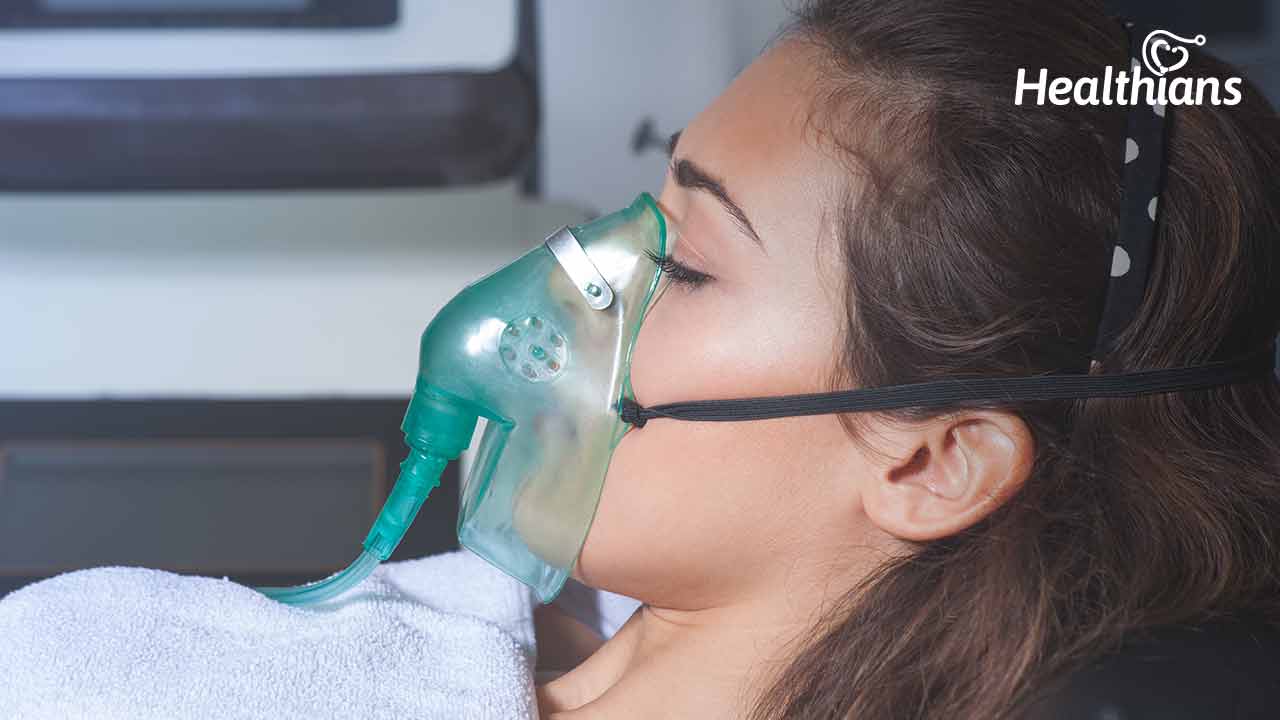Contributed by – Healthians team
Getting out of breath is a pretty normal situation in everyday life. We all experience it while rushing up the stairs or while working out at the gym. It’s the body’s natural response when it requires extra oxygen. However, if you suddenly experience breathlessness without any physical exertion, then you need to pay attention.
How does shortness of breath feel like?
Shortness of breath might feel like you are not able to get enough air into your lungs or you are not able to do it quickly enough. Inhaling and exhaling might feel like the most difficult task you’ve ever done. Breathlessness is not just a physical symptom, but it’s also a feeling that affects the way you think and act which makes the experience of breathlessness unique to each one of us.
- Feeling hot and panicky
- Feeling tight sensation in the chest
- Feeling the need of breathing more quickly
- Feeling of suffocation
- Feeling the need to draw deep breaths but can’t

Causes of shortness of breath
There are four main causes of shortness of breath. They are lung disorders, heart disorders, anxiety, and being unfit. Sometimes, other conditions like smoking, outside circumstances or poor posture can also become the cause of breathlessness.
1. Lung disorder
Different lung conditions become the cause of breathlessness in different ways. In some conditions, airways get inflamed and narrow or are filled with phlegm which makes inhaling and exhaling air difficult. And in other conditions, lungs become stiff and don’t expand much to fill the air.
Some of the lung conditions causing chronic or long-term breathlessness are:
- Chronic Obstructive Pulmonary Disease
- Asthma
- Lung cancer
- Asbestosis
- Bronchiectasis
Some of the lung conditions causing acute or short-term breathlessness are:
- Asthma flare-up
- A blood clot in the lung
- Pneumonia
- Tuberculosis
- Collapsed lung
- A build-up of fluid in the lung
2. Heart conditions
Long term breathlessness is common amongst heart patients. It can be because the heart loses its ability to pump efficiently or because the lungs are congested. The condition may worsen when lying flat. Hence, breathlessness in those with heart conditions in common at night or when asleep.
Some heart conditions which can cause breathing problems are:
- Heart attack
- Abnormal heartbeat
- Congestive heart failure
3. Anxiety
When you are extremely stressed and anxious, the muscles in your chest tighten making you breathe faster than the normal. It’s a normal body response to stressful situations. The more anxious you get, the faster your breathing would become. Sometimes, you may feel that you’re not getting enough air, which will make you panic and your breathing shallower.
Warning signs include sweating, panicking, chest pain and fainting.
4. Being unfit
If you are not fit, your muscles will not be as strong as they should be ideally. And weaker muscles need extra oxygen to function properly. So, the weaker your muscles, the more breathless you would feel.
Those who are overweight need to put extra effort to breath. That extra weight around the chest area also restricts the lung’s ability to expand. Hence, you’re likely to experience breathlessness if you’re overweight or obese.
5. Other conditions
Other causes of breathlessness can be:
- Smoking
- Poor posture
- Anaemia
- Kidney disease
- Thyroid dysfunction
- Being at higher altitudes
- Poor air quality
- Extreme temperatures

When to see a doctor
If your breathlessness is accompanied by these symptoms, then you need to seek medical help immediately.
- If breathlessness persists for more than 30 minutes even after resting
- If breathlessness worsens after using the inhaler
- Swollen ankles and feet
- Coughing
- Chills
- Elevated body temperature
- Wheezing sound while inhaling and exhaling
- Blue fingertips and lips
- Difficulty breathing while lying flat on the back
- Pain in the chest
- Nausea
- Fainting
- Not being able to inhale or exhale completely
- Obstruction in airway
Remember that shortness of breath is also amongst the top symptoms of coronavirus. So, any kind of discomfort while breathing, especially during such challenging times, should not be ignored.




